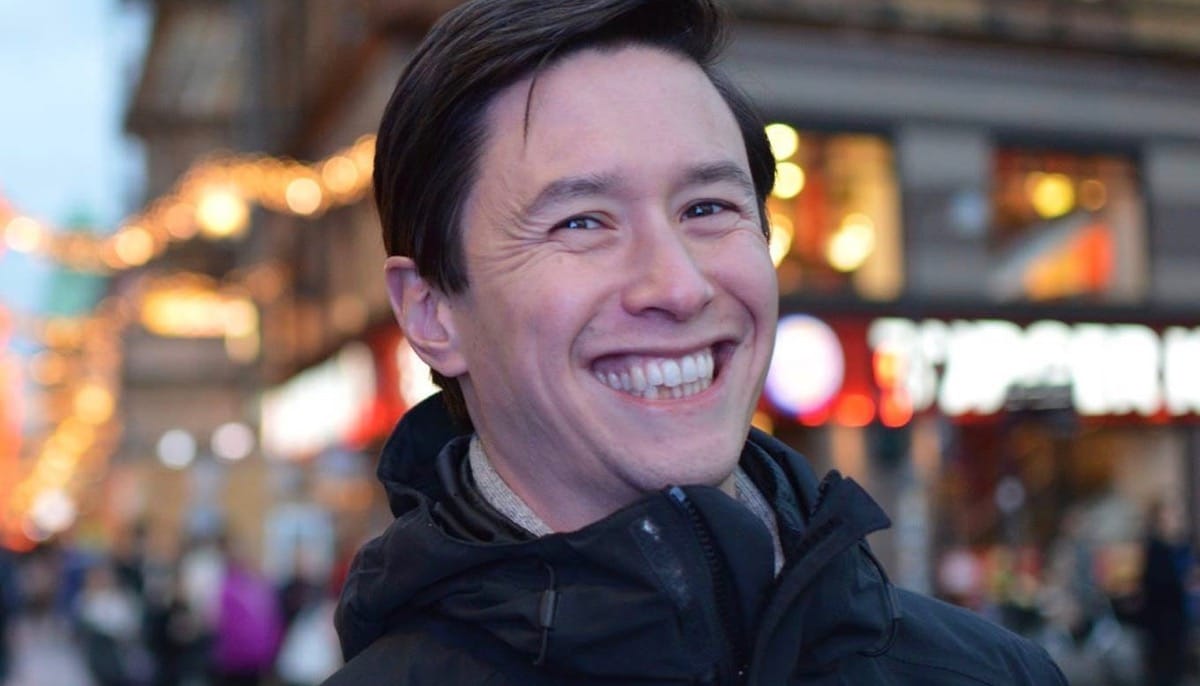Aaron Lee died on Saturday, October 21, at age 34, after fighting cancer for more than a year. Aaron was known to many for his blog, Angry Asian Buddhist, where he wrote anonymously under the pen name “Arunlikhati.”
On Angry Asian Buddhist, Aaron called out the under-representation of Asian Buddhists in American Buddhist media. By doing so, he helped change how Buddhism is represented in the West.
I interviewed Aaron for a profile, in February, after learning of his cancer. Aaron explained to me that he blogged anonymously to avoid issues at his job, but gave me permission to use his real identity if he died.
In our conversation, Aaron told me that when readers of his blog met him in real life, they were surprised.
“You’re much less angry than I thought,” people would tell him.
I had the same experience. Aaron wasn’t angry. Quite the opposite — he was kind, open, considerate, and funny. He explained to me that the blog’s title, “Angry Asian Buddhist,” didn’t actually refer to him, personally; it described the common experience of Asian Buddhist people who are angry.
Aaron cared about creating community, and writing about the experience of Asian Buddhists was one way in which he did that. Among other things, he also helped organize Buddhist groups and worked to amplify the voices of Asian American writers.
When we spoke, Aaron was cheerful despite his prognosis. He said that he was devoting his time to connecting with people he cared about and enjoying what was available to him. He told me:
“The hardest part about getting a terminal diagnosis is that everything that you had imagined and dreamed and hoped for in the future is tossed away. It feels like the diagnosis has taken that away from you. That feeling of loss, for me, was the hardest.
“But really, if you’re dying, let go of what you think you’re gonna be doing fifty years from now, and think about how you can be happy right now, because you only have so many days left. And that’s what’s become important to me. Being able to do that has given me a lot of freedom. I don’t feel like I’m shackled by death. If it comes, it comes. It will come, actually.”
In his last year, Aaron shifted his focus from activism towards creating “refuges,” which he described as spaces where someone can feel safe, supported, and nurtured. In a blog post, he wrote, “In the hospital, I found my speech and actions could become refuges for my family and caregivers — providing them with a space where they could feel calm, positive and helpful.”
When I spoke to Aaron for a second time, in the summer, his prognosis had gotten worse. Doctors were saying that he had about two months left. He asked me, “If you had two months left to live, what would you do?”
He took the time to hear my answer, and then we talked about it for almost a half an hour. That conversation inspired me to try to always live my life with the appreciation that each moment is precious. Even in our conversations, it was obvious that Aaron was always trying to create the refuge that he described.
Aaron concluded his blog post with the words, “As I fling my body through successively brutal cycles of chemotherapy, my real challenge remains for me to be the refuge I wish to see in this world. My life has already been extended by months, and yet the end still seems so precariously near. I’m reminded every day to be thankful to be alive. May I strive for every day to be a refuge for myself and for all beings.”

